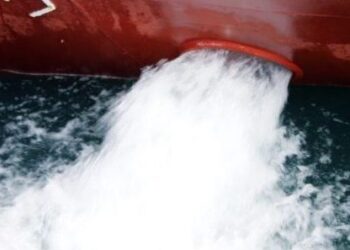US Senate approved last week a new bill which includes a provision eliminating US EPA’s authority over ballast water pollution and at the same time ‘rolling back rules that protect the Great Lakes from invasive species’, the Alliance for the Great Lakes stated.
The Alliance issued a statement to further explain the implications of this new measure. On the contrary, the Lake Carriers Association which represents vessel operators in the Great Lakes, are in favor of the change. The new bill creates one national standard for ballast water discharges from commercial ships and prohibits states from imposing tougher requirements.
The US Senate has voted the so-called ‘Vessel Incidental Discharge Act’ which is a measure that would set a single national standard for ballast water discharges from maritime vessels, the Detroit Free Press reports. Actually, the VIDA provisions remove the authority of the Clean Water Act over ballast water discharges and prohibit states from passing their own ballast water rules, the MLive explains.
“New invasions are all too real. In 2016 a new species of zooplankton was found in Lake Erie. Given that this critter is from the other side of the planet, researchers say that ballast water is a likely way it entered the lakes. Yet rather than installing treatment technology to stop these invasions as quickly as possible, shippers are staying busy convincing Senators to roll back existing rules. Several members of the Great Lakes Congressional delegation are working hard to fight off this bad ballast bill. But we need all of them. We urge the Senate to remove these harmful provisions from the U.S. Coast Guard Authorization Act”, the Alliance urged.
The Lake Carriers Association issued a statement supporting the new legislation: “Without this change, thousands of commercial vessels will spend billions of dollars installing ballast water management systems to meet the federal standard but will still be at risk of fines and penalties for violating several different state standards these systems can’t meet”.

































































